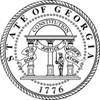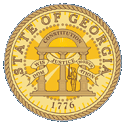
ENDURING HOPE: Deal legislation saves nation's most generous benefits for future generations
Gov. Nathan Deal today will introduce bipartisan legislation that preserves Georgia’s cherished HOPE scholarship and Pre-K programs – among the most generous benefits in the nation -- even as it stabilizes lottery-funded programs for future generations. Deal, along with Republican and Democratic legislative leaders, unveiled the plan on the campus of Georgia State University.
“Facing bankruptcy of the lottery program in 2013, I worked closely with members of the General Assembly to save Georgia’s prized jewel, the HOPE scholarship, for the next generation of Georgians,” Deal said. “With this plan we are going to maintain one of the most generous scholarship programs the United States has ever seen or will ever see. Even in the tough economic times we are facing, HOPE is going to endure, it’s going to thrive.”
Deal revealed legislation that will create the Zell Miller Scholarship program; the program, named for the governor who created HOPE, will maintain full tuition coverage for Georgia’s highest-achieving students.
“Zell Miller’s HOPE scholarship is a distinctly Georgian program that serves as a point of pride for every resident of our great state,” he said. “This plan today is endorsed by Zell Miller, and I’m honored to announce the creation of the Zell Miller Scholarship, which will serve as a reward to Georgia’s best and brightest students and will encourage them to remain in Georgia.”
Under the new legislation, Zell Miller Scholars will include the top 10 percent of HOPE scholars under the present system based on both a 3.7 GPA and a 1200 SAT or 26 ACT score. These scholars attending any public college or university in the state will be awarded full tuition scholarships, while those attending private institutions will receive the full private HOPE award.
Deal assured all of Georgia’s HOPE partners that all three of the lottery-funded programs -- Pre-K, HOPE Scholarship and HOPE Grant -- have been protected and current funding ratios for these programs will remain the same.
Beginning this fall, students with a 3.0 GPA attending Georgia public colleges and universities will receive 90 percent of the FY ‘11 standard tuition rate. To ensure that limited resources are used to best honor the original intent of the HOPE program the legislation will: Eliminate funds for books and fees, eliminate funding for remedial classes, cap eligible hours at 127 and ensure that HOPE scholars are prepared for college-level work by requiring these students to take a certain number of high school rigorous courses.
When discussing Georgia’s youngest scholars, Deal said Pre-K will continue to receive one-third of all lottery-funded expenditures and will remain a voluntary, universal, free program serving 4-year-olds across the state regardless of a family’s economic status.
In order to make several programmatic changes to Pre-K, Deal announced that the state will move from a six-and-a-half hour day to a four-hour day.
“By removing rest time and creating new efficiencies, we can minimize the decrease in instructional time and bring our program more in line with other states and many private preschools,” he said.
Deal closed by citing a verse from one of his favorite hymns: “Strength for today and bright HOPE for tomorrow.”
“We are taking the appropriate steps today to strengthen the HOPE balance sheet, ensuring that future Georgians are afforded the same great opportunities as today’s college and university students. Make no mistake, even after these needed reforms are implemented, Georgia’s invaluable HOPE will endure and continue to set Georgia apart.”
Other changes to of note:
Pre-K
- Georgia remains one of only four states to provide a universal Pre-K program
- Adds 5,000 slots to address the Pre-K waiting list in the state. Currently there are around 9,000 on the waiting list in Georgia.
- Increase of transportation funds
- Increases extended day funds by 4.5 million, tripling the amount currently paid for these slots for at-risk students
HOPE Grant
- Requires students to earn a 3.0 GPA by the first HOPE check point, once enrolled in technical college courses
- Provides that students who already possess a postsecondary degree are ineligible to receive the HOPE Grant
- Establishes a firm cap of 95 quarter hours or 63 semester hours for all students.
The Georgia Lottery Corporation
- Limits bonuses awarded to Georgia Lottery Corporation employees to no more than 25 percent of their base compensation and conditions bonuses on an increase in net proceeds from the prior year transferred to the Lottery for Education Account.
- Lowers the commission paid to lottery retailers from an average of 7 percent to not more than 5 percent on gross sales.
Need-Based Aid
- HOPE Scholarship funds will be paid in full without taking Pell eligibility into account. Pell-eligible students will then be able to use these federal funds to cover the costs of college-going expenses beyond tuition costs.
- $20M will be appropriated to the one percent loan program and Georgia Student Finance Commission will work to raise private matching funds for $10M of this investment. These student loans can also be forgiven altogether if loan recipients become certified and teach in a public K-12 school in the STEM field. Each year of service in the classroom will forgive one year of the student loan.
